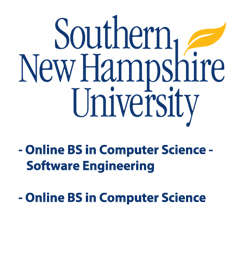
What is a Perl Developer / Engineer?Perl engineers are software engineers who use the Perl language. Job duties may include reviewing or extracting requirements, writing shell scripts, integrating database code, testing and debugging, and contributing to code bases. Perl developers work in a variety of industries: health, informatics, finance, and insurance, among others. Perl is sometimes used in embedded systems.  There are different types of Perl engineers including Perl automation engineer and Perl reverse engineer. As in other software engineering disciplines, there are junior and senior development positions. Senior Perl engineers may be responsible for all stages of the lifecycle. Another high level position is Perl architect --this is the person at the front end, designing and writing algorithms. Jobs in software development, which includes Perl development, are expected to grow by 30% through the next decade. ~BLS
Many companies hire Perl engineers. Among those citing Perl experience in October of 2012, we find Craigslist, Amazon, and the University of Washington. (Craigslist specifically asks for Perl; the others list Perl as one of several acceptable languages.) Southern New Hampshire University offers a top tier Online BS in Computer Science. Additional Online BS programs include Software Engineering, IS, Data Analysis, Information Security, Data Analytics, Cybersecurity, Game Programming and more. An Associate's in Computer Science as well as Master's programs are also offered. Click here to learn about the SNHU programs. Becoming a Perl EngineerSoftware engineers typically enter the Perl developer field with a bachelor's degree. Some positions favor those with a master's. On-the-job experience, though, may substitute for formal education for some development positions. Perl engineers may enter the market with degrees in software engineering, computer science, and other related fields. Software engineers who are interested in embedded systems may oft for software or computer engineering. [Find schools offering CS and SE degrees here] Many programs include an application domain sequence. This provides an opportunity to learn how software engineering is used in a particular industry. Students learn about the needs of the industry; they also get the language under their belt. Senior design projects provide further opportunity for field experience. Perl engineers typically enter the Perl development/engineering field with a bachelor's degree.
There are additional learning opportunities outside academia. Some programmers get their start contributing to open source projects. Staying CurrentThere is no industry-wide certification for Perl. However, there are related certifications that may be of some benefit. A lot of Perl programmers, for example, work in Linux; many integrate database languages. Lead engineers may opt for project management certification. To stay on top of developments in the field, you may want to participate in the Perl Monks community. Other helpful sites include The Perl Foundation and The Perl Community (Perl.org). You can ask questions, hang out on forums... apply for jobs. Perl.org has a job search subdomain. You should be prepared to answer very specific technical questions at a Perl Engineer/Developer job interview.
There are additional sites for engineers who work in specific industries. BioPerl is for developers in genomics and biology. The perl4lib site includes libraries and projects related to the information sciences. Jobs may ask for experience programming in a Linux or Unix environment. Experience with other database and scripting language -- SQL, Java -- may also be desired. C or C++ may make the list. (Perl is sometimes embedded in these languages.) If you are looking for a position as a Perl developer, you should be prepared to answer very specific technical questions at a job interview: You may need to explain commands and symbols, write basic code, tell what libraries would be used for certain tasks, and even tell when you would use Perl as opposed to some other language. You can find lists of potential interview questions on sites likeTech Interviews or Career Cup. In addition to programming skills, companies may ask for familiarity with particular life cycle modules like Agile -- this can be particularly important for senior or lead positions. Some ads cite industry-specific knowledge like HL7 (for health care). Those advertising online may even ask to see profiles on tech sites or general knowledge sites like Quora. Job Outlook and SalaryAs of October 2012, Perl is #9 on the TIOBE Software Most Popular Programming Languages list.
Perl engineers are classified as software developers (either application or systems). The Bureau of Labor Statistics lists the mean wage for a software application developer as $92,080 in 2011. For a software systems engineer, the average is slightly higher: $100,420. Jobs in software development are expected to grow by 30% during the years 2010 to 2020. The growth should be higher for systems engineers, but only slightly so. No one language will make or break a computer developer, but some are hotter than others. TIOBE Software maintains a list of the 50 most popular computer languages (updated monthly). As of October 2012, Perl is #9. |

